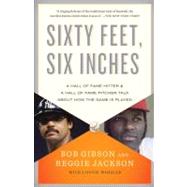
| Introduction | p. 1 |
| The Pitched Battle | p. 5 |
| Mechanics | p. 35 |
| Stuff | p. 66 |
| Corners | p. 90 |
| Scenarios | p. 113 |
| The Other Guys | p. 139 |
| Things That a Fellow Just Has to Deal With | p. 157 |
| Atmosphere | p. 184 |
| Towering Figures | p. 206 |
| Makeup | p. 228 |
| Forty Years of Change | p. 255 |
| Acknowledgments | p. 275 |
| Table of Contents provided by Ingram. All Rights Reserved. |
The New copy of this book will include any supplemental materials advertised. Please check the title of the book to determine if it should include any access cards, study guides, lab manuals, CDs, etc.
The Used, Rental and eBook copies of this book are not guaranteed to include any supplemental materials. Typically, only the book itself is included. This is true even if the title states it includes any access cards, study guides, lab manuals, CDs, etc.
Excerpted from Sixty Feet, Six Inches: A Hall of Fame Hitter and a Hall of Fame Pitcher Talk about How the Game Is Played by Bob Gibson, Reggie Jackson, Lonnie Wheeler
All rights reserved by the original copyright owners. Excerpts are provided for display purposes only and may not be reproduced, reprinted or distributed without the written permission of the publisher.